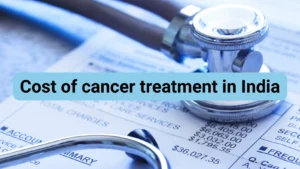✨ Fertility Tourism in Iran, Türkiye, and Beyond — Top Destinations, Costs, and Legal Guide 🗺️
Your Definitive, 2200+ Word Guide to Navigating IVF, ICSI, and PGT Abroad in 2025.
📝 Executive Summary: Navigating Global Fertility Tourism Landscape
Fertility Tourism in Iran, Türkiye, and Beyond is exploding globally, driven by the need for affordability, accessibility, and specific legal provisions unavailable in many Western nations. Consequently, patients must view this journey not merely through a financial lens but, most importantly, through a rigorous legal and ethical filter. This comprehensive analysis breaks down the unique offerings and critical limitations of the world’s leading medical travel hubs.
- 🇮🇷 Iran: Offers the lowest costs (often under $4,000 per IVF cycle) and highly advanced technical expertise (especially ICSI). However, be warned: donor conception and surrogacy are strictly prohibited for international, non-Muslim, single, or same-sex couples, restricting options primarily to those using their own gametes. Consult the Complete Legal Medical Travel Guide: Iran Regulations for details.
- 🇹🇷 Türkiye: Recognized for world-class, government-regulated infrastructure and competitive pricing ($3,500 – $6,500). Yet, its legal code creates an absolute barrier: all forms of donor treatment (egg, sperm, embryo) and surrogacy are 100% illegal for everyone. Treatment is limited to married, heterosexual couples using their own genetic material. Find out more at the Complete Legal Medical Travel Guide: Turkey Regulations.
- 🇪🇺 Beyond (Europe/Asia): Destinations like Spain, Czechia, and North Cyprus provide the crucial legal flexibility that Iran and Türkiye lack, including anonymous donor conception and permissive laws regarding specialized procedures like PGT-A for family balancing. Therefore, these regions often cater to patients requiring third-party assistance.
- Cost Dynamics: Patients typically achieve savings of 30% to 70% compared to the US and UK. Nevertheless, success demands diligent budgeting for often-high medication costs ($2,000 to $5,000 per cycle) and legal fees related to parentage.
- Key Takeaway: Success in Fertility Tourism in Iran, Türkiye, and Beyond hinges entirely on aligning the destination’s strict laws with the specific medical procedure needed.
🎯 Who is This For? Understanding Your Global Options
This extensive guide serves both the individuals embarking on this deeply personal journey and the professionals who advise them. Consequently, understanding the dual audience ensures the content is both empathetic and factually rigorous.
1. Intended Parents: Finding Hope Abroad
This group includes individuals or heterosexual couples who have faced multiple unsuccessful cycles domestically or lack the financial means for treatment at home. Specifically, you might be seeking:
- Cost Efficiency: Routine IVF or ICSI at a fraction of the cost, making Fertility Tourism in Iran, Türkiye, and Beyond a necessity.
- Specific Services: Access to advanced techniques like Preimplantation Genetic Testing (PGT), often with shorter waiting lists.
- Donor Access: The need for reliable, anonymous egg or sperm donation, which immediately rules out Iran and Türkiye, directing focus toward European hubs.
Indeed, choosing a destination involves a deeply personal calculation balancing financial savings against the emotional and logistical toll of travel. We have a detailed Fertility Treatments Pre-Travel Checklist available to help you organize.
2. Healthcare Professionals & Facilitators: Authoritative Data
Clinicians, patient advocates, and medical travel agents require authoritative, comparative data. For instance, knowing that a patient requiring donor eggs cannot be referred to Istanbul, but must go to North Cyprus or Spain, is a critical legal and ethical responsibility. This guide provides the factual foundation needed to ensure accurate patient counseling, particularly concerning the vast legal chasm separating countries in the Fertility Tourism in Iran, Türkiye, and Beyond market.
🌍 The Magnetism of Medical Travel: Appeal and Pitfalls
The primary drivers propelling the expansion of Fertility Tourism in Iran, Türkiye, and Beyond remain constant: high domestic costs, restrictive laws, and often lengthy waiting lists. However, this path requires a rigorous assessment of quality, cost, and legal risk.
💰 The Cost-Quality Equation and Unexpected Expenses
Cost savings are indisputable. For example, while an average IVF cycle in Australia or the US can range from $15,000 to $25,000, the same core procedure in a high-quality center in Iran or Türkiye can be secured for $3,000 to $7,000. Consequently, this dramatic difference makes global travel the only path to parenthood for many.
Furthermore, high-volume clinics abroad are often centers of excellence. A study from the University of Oxford suggests a correlation between a clinic’s annual cycle volume and slightly improved success rates due to accrued expertise and standardized laboratory protocols. Nevertheless, high volume does not equate to ethical superiority. You must always review the Choosing a Surgeon/Clinic Abroad Checklist before making a decision.
🛑 The Challenge of Hidden Costs and Medication
A common oversight is the cost of fertility medication. These drugs, often hormonal injectables, can easily add $2,000 to $5,000 to the total budget. While the procedure fee might be low, the medication price may not differ significantly from country to country. Therefore, always demand a detailed, itemized quote that clearly separates all costs. We also advise reviewing our guide on Egg Donation IVF Price 2025: A Complete Guide to Costs to ensure comprehensive budgeting.
✅ Pros and ❌ Cons of Fertility Tourism
✅ Pros
- Significant Cost Savings: Up to 70% savings on the total cycle.
- Reduced Wait Times: Immediate access to procedures like IVF Process: Ultimate Step-by-Step Guide and ICSI Treatment.
- Advanced Technology Access: Specialized labs for PGT and high-end embryology (University of Cambridge academic study on high-volume clinics: Link to Academic Research).
- Legal Flexibility: Access to treatments like Fetal Gender Selection for family balancing in specific regions (outside Iran/Türkiye).
❌ Cons
- Legal & Parentage Risk: Home country non-recognition of foreign birth documents, especially if surrogacy is involved.
- Emotional & Logistical Burden: Stress of coordinating travel and treatment simultaneously.
- Varying Regulation: Inconsistencies in ethical standards and accreditation.
- Hidden Costs: High medication, travel, and extended accommodation expenses.
🗺️ Destination Deep Dive: Iran vs. Türkiye vs. Europe’s Hubs
When weighing Fertility Tourism in Iran, Türkiye, and Beyond, the primary filter must be legality. What specific procedure do you need? This answer determines the viable destination.
🇮🇷 Iran: Excellence in ICSI, High Legal Walls
Iran is a silent giant in reproductive medicine, often pioneering techniques like ICSI (Intracytoplasmic Sperm Injection) since the 1990s. The clinics boast modern equipment and highly trained specialists, often providing technical quality that rivals Europe at a quarter of the cost. The affordability factor is huge, with single IVF cycles often costing $2,000 to $4,000. Consult the Medical Tourism Iran 2025 Ultimate Guide for comprehensive logistics.
However, the legal reality for international patients is incredibly restrictive. The legal system, rooted in Sharia law, explicitly bars third-party reproduction for almost all foreigners. A detailed academic article on Sharia and modern bioethics clarifies this prohibition: Link to Academic Paper on Sharia Law and IVF.
- Donor Conception: Strictly Prohibited for international, non-Muslim, single, or same-sex couples. This is the ultimate dealbreaker for patients needing donor eggs or sperm.
- Surrogacy: Explicitly Forbidden for non-Iranian individuals and generally unworkable for non-Muslims.
- Eligibility: Treatment is almost universally restricted to legally married, heterosexual couples using their own gametes.
🇹🇷 Türkiye: Regulated Quality, Absolute Prohibition
Türkiye has invested heavily in medical tourism, resulting in numerous Joint Commission International (JCI) accredited hospitals, particularly in Istanbul and Ankara. This means quality assurance and patient safety standards are exceptionally high, often exceeding standards in other parts of the world. An IVF cycle generally runs between $3,500 and $6,500. See the Medical Tourism Turkey Ultimate Guide 2025 for travel information.
Nevertheless, the Turkish Ministry of Health regulations are crystal clear and non-negotiable. Consequently, if you require any form of donated genetic material, Türkiye is not a viable option.
- Donor Conception: Egg donation, sperm donation, and embryo donation are Strictly Illegal for all patients (local and international).
- Surrogacy: All forms (gestational or traditional) are Prohibited by law.
- Who Can Be Treated: Only legally married, heterosexual couples using their own eggs and sperm are eligible.
🇪🇺 Beyond: Legal Flexibility and Donor Options
The third pillar of Fertility Tourism in Iran, Türkiye, and Beyond comprises the destinations that specifically allow third-party reproduction. These countries offer a legal ‘safety valve’ for couples and individuals excluded by the laws of Iran and Türkiye.
Spain: The European Leader in Donor IVF
Spain is a global fertility superpower known for high success rates and liberal laws. Specifically, egg and sperm donation is legal and anonymous, allowing for efficient matching with high-quality donors. Spain’s commitment to quality makes the higher cost ($5,500 – $8,000 for IVF plus donor fees) worthwhile for many international patients. Furthermore, Spanish clinics are highly regulated, offering peace of mind.
Czechia (Czech Republic): Affordable Anonymous Donation
Czechia is highly favored for its cost-effective and strictly anonymous egg donation programs. Indeed, it offers a great balance of EU quality standards and lower prices than Spain or the UK. However, treatment is typically restricted to women under 49 years old, and single women or same-sex couples may face restrictions, though this varies by clinic.
North Cyprus: PGT and Gender Selection
North Cyprus operates under a different regulatory framework, attracting patients seeking procedures restricted elsewhere, particularly Preimplantation Genetic Testing (PGT) for elective Fetal Gender Selection (family balancing). While not as low-cost as Iran, it offers the legal permissiveness for donor services and advanced embryo screening that is crucial for many international families. This legal niche places it squarely in the global fertility tourism market.
🔬 The Edge of Technology: ICSI, PGT, and AI in Fertility
In the modern landscape of Fertility Tourism in Iran, Türkiye, and Beyond, patients aren’t just traveling for lower costs; they are seeking advanced clinical excellence. Three technologies dominate this landscape: ICSI, PGT, and the emerging role of Artificial Intelligence.
ICSI: The Technique of Choice
ICSI (Intracytoplasmic Sperm Injection) has become the default fertilization method in many high-volume clinics abroad, even when male factor infertility is not the primary issue. Conversely to standard IVF, ICSI involves the direct injection of a single sperm into the egg, dramatically improving fertilization rates, particularly where sperm quality is a concern. Clinics in Iran and Türkiye have decades of experience perfecting this technique. We have a detailed guide on ICSI Treatment Global Cost 2025.
PGT: Preimplantation Genetic Testing
PGT is a crucial tool for improving IVF success rates by screening embryos for chromosomal abnormalities (PGT-A) before transfer. This is essential for older women or those with recurrent implantation failure.
- PGT-A (Aneuploidy Screening): Checks for the correct number of chromosomes. A study published by the American Society for Reproductive Medicine strongly supports the use of PGT-A in specific patient populations (Source: ASRM Clinical Guidelines Link).
- PGT-SR (Structural Rearrangements) / PGT-M (Monogenic): Used for couples carrying specific genetic disorders.
Therefore, if PGT is required, destinations like North Cyprus and Spain offer the necessary legal framework for full embryo screening, including for PGT-A IVF Gender Selection for family balancing.
Artificial Intelligence (AI) in Embryology
The newest frontier in Fertility Tourism in Iran, Türkiye, and Beyond is AI integration. AI algorithms are now assisting embryologists in selecting the most viable embryos for transfer by analyzing time-lapse images. This reduces human error and potentially increases success rates, marking a shift toward New Methods in IVF in 2025: Precision Fertility with AI.
💵 Comparative Cost and Legal Snapshot: A Critical Decision Guide
This expanded table provides a detailed financial and legal comparison. Ultimately, this data confirms that the choice within Fertility Tourism in Iran, Türkiye, and Beyond is a choice of legal permissiveness, not just price.
| Destination | Average IVF Cycle Cost (USD) | Egg/Sperm Donation Status | Surrogacy Status | Recipient Eligibility | JCI/Accreditation Status |
|---|---|---|---|---|---|
| 🇮🇷 Iran | $2,000 – $4,000 (Lowest) | Prohibited for international couples/singles. | Prohibited for international patients. | Heterosexual, married couples only. | High national standards; some international accreditation. |
| 🇹🇷 Türkiye | $3,500 – $6,500 | Strictly Illegal for all patients. | Strictly Illegal for all patients. | Heterosexual, married couples only. | High JCI accreditation rate (e.g., Acıbadem Health Group). |
| 🇨🇿 Czechia (EU) | $4,500 – $7,000 (Procedure only) | Permitted (Anonymous, highly available). | Generally Illegal/Unregulated. | Heterosexual couples (laws vary by clinic). | EU-regulated, high standards. |
| 🇪🇸 Spain (EU) | $5,500 – $8,000 (Procedure only) | Permitted (Anonymous, highly regulated). | Illegal. | Liberal (includes single women and same-sex couples). | EU-regulated, established medical authority. |
| 🇰🇾 North Cyprus | $6,000 – $9,000 (Includes PGT) | Permitted (Highly regulated). | Illegal. | Liberal (PGT and Gender Selection allowed). | National standards; popular for specific treatments. |
Note: Costs are approximate for a single basic IVF cycle. Donor fees typically add $4,000 to $7,000 to the total cost in donor-friendly destinations.
👩❤️👨 Case Study: The Donor Dilemma — Why Law Trumps Cost
Jane and Mark’s Journey (Mid-40s, UK)
Jane and Mark faced two significant challenges: Jane’s age necessitated egg donation, and they had limited savings after two failed domestic IVF cycles. They initially researched Fertility Tourism in Iran, Türkiye, and Beyond based purely on price.
Initial Attraction: Türkiye’s high-quality hospitals and low costs were initially appealing. However, their advisor quickly pointed out the absolute ban on egg donation in Türkiye. Consequently, Türkiye was immediately disqualified, regardless of the savings.
Second Consideration: The couple briefly considered Iran due to the extremely low costs. Nevertheless, the legal status as non-Muslim foreigners requiring donor eggs once again posed an insurmountable barrier.
The Solution: They shifted their focus to Czechia. Although the base IVF cost was higher ($5,500 vs. Iran’s $3,000), Czechia offered anonymous egg donation which was legal and readily available. The final cost, including travel and donor fees, was approximately $12,000, saving them over 50% compared to a similar treatment in the UK, but critically, it was the only legal path available to them in the region. Their successful journey underscores that the legal fit is paramount in Fertility Tourism in Iran, Türkiye, and Beyond.
⚖️ Legal Parentage, Ethics, and the PGT Debate
Legal risk is often the most neglected, yet most dangerous, aspect of Fertility Tourism in Iran, Türkiye, and Beyond. Securing legal parentage recognition in your home country is crucial. Many jurisdictions do not automatically recognize birth certificates issued under international surrogacy or donor agreements, especially if those processes violate your home country’s public policy. Always seek the advice of an international family law attorney.
Therefore, we urge all patients to review the Global Medical Treatment Regulations Guide before committing to any treatment.
The PGT Ethical Divide
The legality of PGT-A for screening and, controversially, for fetal sex determination (family balancing) creates a significant ethical divide. While legally available in places like North Cyprus, it is strictly banned in much of the EU and in Türkiye.
Ethical considerations around embryo disposition are also vital. Patients must inquire:
- Embryo Storage: What is the maximum storage duration, and what are the fees?
- Disposal Law: What happens to unused embryos if we stop paying storage fees? Are they mandated for destruction, donation, or research? Laws surrounding this differ significantly between countries.
- Donor Screening: How extensive is the genetic, psychological, and infectious disease screening of donors? Always verify the standards (University of Edinburgh ethics paper on donor screening: Link to Ethics Review).
✈️ Beyond the Procedure: Budgeting and Logistics
Successful Fertility Tourism in Iran, Türkiye, and Beyond requires rigorous planning beyond the medical bill. The costs of travel, accommodation, and the duration of stay are significant factors that can quickly erode the savings made on the procedure itself.
Accommodation and Stay Duration
An average IVF cycle requires a stay of 14 to 21 days in the destination country to accommodate ovarian stimulation, egg retrieval, and embryo transfer. Consequently, patients must budget for three weeks of lodging, food, and local transportation. A study by the WHO on managing medical travel logistics emphasizes this planning necessity (Source: WHO Report on Medical Tourism).
Therefore, when considering cheaper countries like Iran, ensure you factor in language barriers and the potential need for a professional interpreter or patient coordinator. Read our general guide on Pre-Travel Resources and Checklists for Patients.
The Importance of Accreditation
When selecting a clinic in the sphere of Fertility Tourism in Iran, Türkiye, and Beyond, look for recognized accreditation.
- JCI (Joint Commission International): A global benchmark for quality and safety. Many large Turkish hospital chains are JCI accredited.
- ESHRE (European Society of Human Reproduction and Embryology): While not an accrediting body, membership indicates adherence to key standards and research practices.
Indeed, choosing an accredited facility significantly mitigates risk. A US medical journal review underscores the importance of accreditation in patient outcomes (Source: AHRQ Review on Accreditation).
In summary, while cost comparison is tempting, the safest and most successful patient journeys rely on meticulous legal and ethical alignment with a high-quality, accredited facility.
❓ Frequently Asked Questions (FAQ)
Here are answers to the most common questions regarding Fertility Tourism in Iran, Türkiye, and Beyond, designed to be simple and authoritative.
1. Is Iran safe for medical tourists, considering political tensions?
Generally, major cities in Iran are safe for medical tourists, who are typically treated with respect and hospitality. The medical system is highly developed. However, it is essential to follow all local customs, laws, and travel advisories from your home government. Furthermore, you should always consider geopolitical stability before booking, especially for multi-stage treatments.
2. Can I bring my own donor sperm or eggs to a clinic abroad?
The importation of frozen gametes is highly complex and regulated. Most countries have strict rules (often prohibitive) regarding the import/export of genetic material to maintain legal chain of custody and quality control. Therefore, always assume you must use the clinic’s local, in-country donor program, if one is legally available.
3. What is the success rate for IVF in Turkish clinics?
Success rates in highly regulated Turkish clinics are generally excellent and are comparable to EU averages, often due to high patient volume and JCI accreditation. However, be wary of generalized figures. Always ask for age-banded live birth rates per embryo transfer from the specific clinic you plan to use.
4. Is there a difference in medication protocols abroad?
Medication protocols (e.g., antagonist vs. agonist) are generally standardized globally. Nevertheless, the specific brands or generic equivalents used may differ from your home country. Your doctor must ensure the protocol is tailored to your specific needs.
5. Can single women receive IVF treatment in Iran or Türkiye?
No. Both Iran and Türkiye legally restrict fertility treatments (IVF, ICSI) exclusively to heterosexual couples who are legally married. Single women requiring treatment must look to more liberal destinations like Spain or North Cyprus.
6. What happens to my frozen embryos if I cannot return to the clinic?
The legal status of cryopreserved embryos is complex and dictated by local law. In some regions, a contract allows the clinic to dispose of them after a set period of non-payment or non-contact. Therefore, clarify the storage duration and disposition policy in your contract before freezing any embryos.
7. What is PGT, and why is it legally restricted in some countries?
PGT (Preimplantation Genetic Testing) screens embryos for genetic or chromosomal disorders before implantation. It is restricted in certain countries, primarily the most restrictive regions in Fertility Tourism in Iran, Türkiye, and Beyond, due to ethical concerns surrounding embryo manipulation and selection, especially when used for non-medical purposes like family balancing.
8. What is the medical travel visa process for Iran?
Iran offers a specific medical travel visa (C12) which facilitates entry for treatment. However, the application process requires a letter of acceptance or treatment plan from the Iranian hospital, which must be approved by the Ministry of Foreign Affairs. For full details on the process, consult the Medical Travel Iran 2025 Visa Guide.
9. How do I ensure the quality of an embryo transferred abroad?
You must rely on the clinic’s transparent reporting and high laboratory standards. Look for clinics that use time-lapse imaging, provide detailed grading reports (using the Gardner scale), and have strict quality assurance protocols for the embryology lab, which is the most critical component.
10. Why is fetal gender selection prohibited in Türkiye but allowed in North Cyprus?
The distinction is legal and cultural. Türkiye, under its Ministry of Health regulations, strictly prohibits sex selection unless it is medically necessary to prevent a sex-linked disease. North Cyprus operates under a more liberal legal framework, allowing PGT for family balancing, making it a key destination for this specific procedure. Consult our Fetal Gender Selection Risks and Success Rates guide.
11. Can I use frozen embryos created in my home country for transfer abroad?
Transferring frozen embryos internationally is legally challenging due to transport and licensing laws, especially regarding the original storage and creation country’s regulations. Therefore, while technically possible, it is often easier and legally safer to undergo a fresh cycle using the destination clinic’s procedures.
12. What are the key ethical red flags to watch out for in fertility tourism?
Major ethical red flags include clinics that promise 100% success rates, offer illegal treatments (e.g., donor treatments in Türkiye), or fail to provide detailed, transparent, age-banded success statistics. Always be wary of clinics that push unnecessary high-cost ‘add-ons’ without clear clinical evidence.




